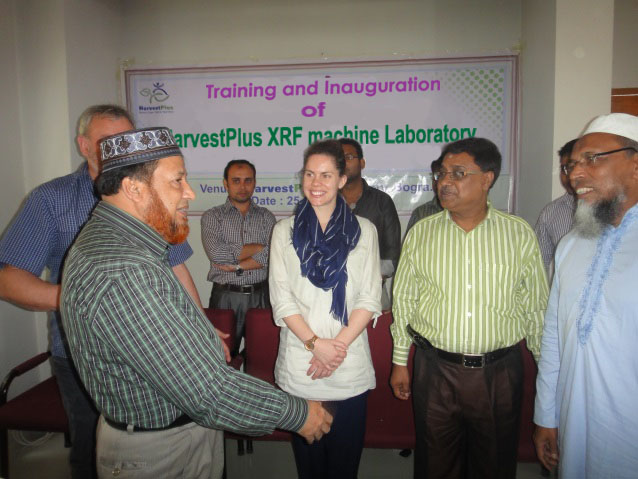The following blog story was originally published on the HarvestPlus blog.
HarvestPlus has opened a facility in Bangladesh to support faster breeding of zinc rice and train scientists in the use of advanced screening techniques. The X-ray fluorescence (XRF) laboratory center is located at HarvestPlus’ regional office in Bogra.
“Our main goal at the moment is to ensure quality zinc rice for the people of Bangladesh, and this lab will provide the support necessary to improve the nutrient content in rice,” said Dr. Khairul Bashar, the HarvestPlus Country Manager, at the launch event.
The facility is the first of its kind in Bangladesh and boasts an XRF machine, which allows for speedier identification of the best seeds with the most nutrients needed for breeding—saving time and money for researchers. The XRF technology uses gamma rays to analyze elements, and is considered a more efficient and cost-effective alternative to other technologies available to crop breeders.
HarvestPlus is making the XRF laboratory available to partner organizations involved in analyzing and developing zinc and iron content in rice and wheat, and has brought in experts to train local scientists in the use of the facility.
Bangladesh is recognized for embracing modern technologies to improve crops, and recently released its third zinc rice variety. The variety, BRRI dhan72, is adapted for cultivation in the southern part of the country, and is high yielding, as well as disease and pest resistant.







